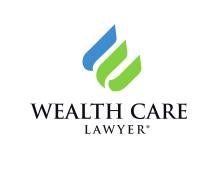In this second installment of our estate planning refresher series, we examine critical areas where even experienced practitioners can benefit from a systematic review. These insights serve both as risk management tools and technical updates for estate planning professionals, helping navigate the subtle complexities that often arise in seemingly routine matters.
6. The Marital Deduction Trap: Beyond Simple Spousal Transfers
The simplicity of leaving everything outright to a surviving spouse often masks significant complications. While clients often point to the unlimited marital deduction as protection against estate taxes on the first death, this approach frequently results in an unexpected and substantial tax burden at the second death, catching families off guard precisely when flexibility is most needed.
A more nuanced strategy involves implementing a credit equivalent bypass trust, also known as a credit shelter trust. While funding is limited to the estate tax credit amount, any appreciation of these assets remains outside the taxable estate. In today's environment of appreciating assets and changing estate tax exemptions, this growth factor can create substantial long-term tax savings.
With increasing global mobility, practitioners must now consider the interplay between different jurisdictional approaches to marital property rights. A seemingly straightforward marital deduction strategy can unravel when confronted with foreign property regulations or citizenship-based taxation systems. This complexity demands careful consideration of qualified domestic trusts (QDOTs) and other specialized structures that can bridge international estate planning gaps.
Consider a common scenario: A U.S. citizen marries a German national who holds significant assets in both countries. The default marital deduction strategy fails here because the IRS doesn't allow an automatic marital deduction for transfers to non-citizen spouses. Without proper planning, the estate could face immediate U.S. estate tax on the first death, plus additional German inheritance tax complications.
The solution requires a qualified domestic trust (QDOT). However, practitioners must ensure the QDOT meets several specific requirements: it needs a U.S. trustee, immediate payment of any estate tax if principal is distributed, and special withholding on distributions to the non-citizen spouse. For estates over $2 million, either a U.S. bank must be trustee or the individual trustee must furnish a bond or letter of credit for 65% of the initial QDOT value.
Moreover, if the German spouse owns real estate in Germany, practitioners must navigate Germany's forced heirship laws, which guarantee children a portion of their parent's estate regardless of the will's provisions. These laws can override U.S. trust arrangements unless specifically addressed through additional documentation acceptable under German law. A properly structured QDOT must account for these foreign inheritance rights while maintaining its qualified status under U.S. tax law.
7. Strategic Asset Distribution: Beyond Equal Shares
Asset allocation requires a more sophisticated approach than simple mathematical division. Estate planning practitioners frequently encounter situations where equal distribution fails to achieve the testator's true intentions. Some beneficiaries may struggle with substance abuse or recovery, while others might simply lack financial literacy or experience in managing wealth. Mental health considerations and varying levels of maturity also play crucial roles in determining appropriate distribution strategies.
You're right - let me revise that section to be more concrete and practical:
Modern digital assets present unique valuation and transfer challenges that traditional estate planning often overlooks. Take for instance an e-commerce business built on Amazon or Shopify - while the platform account itself may have minimal book value, the accumulated customer data, vendor relationships, and automated systems often represent the true worth of the business. These assets require specific transfer provisions and cannot simply be passed down through traditional inheritance mechanisms. Amazon's Terms of Service, for example, explicitly restrict account transfers except under carefully documented circumstances.
The same complexity applies to cryptocurrency holdings. Beyond simply passing on wallet access credentials (which itself requires careful security planning), estates must now address issues like multi-signature wallets, cold storage protocols, and smart contract obligations. A cryptocurrency portfolio worth millions could become worthless if proper transfer protocols aren't established before death. This requires specific provisions in estate documents detailing not just the transfer of assets, but the technical procedures for accessing and securing them.
As for business interests in traditional industries, we're seeing increased demand for flexible conversion options in trust instruments. Rather than forcing beneficiaries to maintain inherited interests in family businesses, modern trust provisions often include specific mechanisms for business interest conversions. These might include put options at predetermined valuations, structured buyout provisions over time, or rights of first refusal for other family members who wish to maintain the business interest. Such provisions help prevent family conflicts while preserving asset value through transition periods.
8. Business Continuity and Asset Value Preservation
Here's a more contemporary take on business continuity:
For closely held businesses, value preservation now extends far beyond traditional insurance solutions. We're seeing the emergence of "digital twin" succession planning, where businesses create virtual replicas of their operational systems, client relationships, and institutional knowledge. This approach allows for seamless transition by maintaining a real-time digital archive of key business processes, client relationships, and operational decisions.
Take for instance a family-owned fintech company: beyond traditional key person insurance, their succession plan includes detailed documentation of proprietary algorithms, API architectures, and customer acquisition strategies. The plan establishes specific protocols for transferring GitHub repositories, AWS cloud infrastructure, and software licensing agreements - assets that often hold more value than physical infrastructure.
Additionally, modern succession plans must address platform dependency risks. Many businesses now derive significant value from their position within digital ecosystems - whether it's a Shopify store's ranking algorithms, an app's position in the Apple Store, or a company's Amazon seller metrics. These platform-specific assets require specialized succession provisions that account for platform policy changes and ensure compliance with evolving digital marketplace rules.
While traditional key person and overhead insurance remain relevant, they're now supplemented with cyber insurance, intellectual property coverage, and data breach protection. More importantly, succession plans increasingly include provisions for maintaining AI model training data, algorithm refinement processes, and machine learning infrastructure - assets that could significantly depreciate without proper maintenance during transition periods.
9. Documentation and Record Management
Proper documentation stands as a cornerstone of effective estate administration, yet it often receives insufficient attention during the planning process. The costs of reconstructing inadequate records can quickly become substantial, both in terms of time and money. A comprehensive approach to record keeping should include secure storage solutions, whether through traditional safe deposit boxes or modern digital vaults.
Digital vaults need not be complex or expensive. Google Drive, a service most clients already use, provides robust security for estate planning documents when properly configured. Files stored on Drive are protected with industry-standard encryption both in transit and at rest, while Google's enterprise-grade security infrastructure offers protection that matches or exceeds many dedicated digital vault services. The platform's familiar interface, automatic syncing across devices, and sophisticated sharing controls make it ideal for storing and selectively sharing estate planning documents with family members and advisors. Setting up a dedicated Google account for estate planning documents, implementing two-factor authentication, and maintaining clear folder structures creates a practical, cost-effective solution for most clients.
For those with heightened privacy concerns, particularly around data mining or government access, Proton Drive offers a compelling alternative. Based in Switzerland and featuring zero-knowledge encryption, Proton's service ensures that not even their own staff can access stored documents. While this additional security comes at a modest price premium, the cost remains well below dedicated estate planning vault services while providing arguably superior privacy protection.
Digital assets require attention in modern estate planning, but for most clients this simply means ensuring proper documentation of cryptocurrency exchange accounts, digital wallet access information, and hardware wallet locations. While blockchain technology continues to evolve, the immediate practical concern for estate planners is much more basic: ensuring executors can locate and access digital assets, particularly cryptocurrency holdings. This typically requires nothing more complex than maintaining an encrypted record of wallet access information and exchange account credentials, along with clear instructions for their use. For the small percentage of clients actively involved in DeFi protocols or complex smart contracts, specialized provisions may be necessary - but for the vast majority, basic digital asset documentation protocols are sufficient.
10. The Master Strategy: Professional Team Integration
The complexity of modern estate planning demands more than individual expertise—it requires a coordinated team of professionals working in concert. The traditional team now requires new expertise in emerging fields. Data privacy specialists can help navigate digital asset protection, while Environmental, Social, and Governance (ESG) consultants may provide valuable insight for families seeking to align their legacy with sustainability goals.
Artificial intelligence and machine learning tools are increasingly valuable for scenario planning and risk assessment in estate administration. While these tools cannot replace human judgment, they can help identify potential conflicts or oversights in complex estate plans. Practitioners should consider how to effectively integrate these technological aids while maintaining the personal touch essential to effective estate planning.
11. Modern Family Dynamics and Alternative Legacy Planning
Traditional estate planning often assumes a conventional family structure, but modern relationships demand more nuanced approaches. The rise of blended families, chosen families, and non-traditional partnerships requires creative solutions that may not fit standard planning templates. Practitioners should consider how to craft plans that honor these relationships while maintaining legal validity and tax efficiency.
Modern reproductive technology has fundamentally altered how we must define family relationships in estate planning documents. Stored genetic material - frozen embryos, preserved eggs, or sperm - can remain viable long after death, creating potential posthumous heirs. Without specific provisions addressing these possibilities, children conceived through assisted reproduction might be unintentionally excluded from family trusts or fail to qualify as descendants under existing documents. Even more immediate are the challenges presented by surrogacy arrangements, where traditional definitions of "issue" or "descendants" may not clearly encompass intended children.
Practitioners must now carefully craft definitions of familial relationships and include explicit provisions addressing reproductive material in their documents. This includes clear definitions of terms like "issue" and "descendants," reasonable time limits on posthumous conception rights, and specific language addressing inheritance rights of children born through various assisted reproductive technologies. The goal is to ensure intended beneficiaries are included while preventing unintended claims, particularly in situations involving donated genetic material or multi-state surrogacy arrangements.
The concept of legacy itself is evolving. While financial assets remain important, many clients now seek to transmit values, ethical frameworks, and social capital to future generations. This might involve creating structures for ongoing family philanthropy, establishing educational trusts with specific value-based criteria, or developing mechanisms for preserving and sharing family histories and traditions.
Conclusion
Modern estate planning practice requires vigilance and regular review of these critical areas. As practitioners, our role extends beyond mere document preparation to encompass comprehensive planning that considers family dynamics, asset protection, tax efficiency, and business succession planning. As we look to the future, estate planning must continue to evolve alongside changing social norms, technological advances, and environmental considerations. The most effective practitioners will be those who can balance traditional planning principles with emerging needs, creating flexible structures that can adapt to an increasingly complex and interconnected world.
Look for Part 3 of the Refresher.




 />i
/>i

